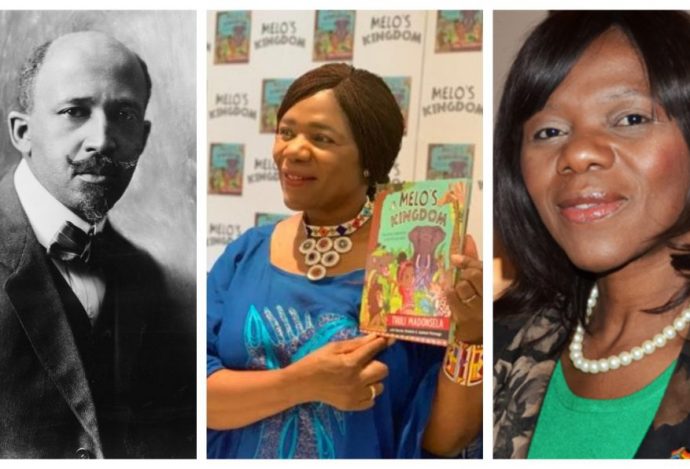Welcome to the fourth and final part of our series celebrating the lives and achievements of our Black History Month heroes.
Throughout the month we’ve received over 50 nominations from staff, students and senior members, including sportspeople, politicians, civil rights activists, poets, actors, musicians, scientists and more. Thank you to all who have contributed.

Leontyne Price – Is an award winning American soprano and a pioneer among female African American artists. She is credited as an inspiration for a whole generation of singers and took centre stage in the 2017 documentary The Opera House, an exploration of the history of the Metropolitan Opera.
Willie Waters – Probably the leading African American conductor of his generation, he has directed the Opera Colorado, Boston Opera, Eugene Opera, Ebony Opera Houston, New York City Opera, the Deutsche Oper Berlin and many more.
He also served as General and Artistic Director of the Connecticut Opera for twelve years, conducting more than thirty productions, and as Artistic Director and Principal Conductor of the Florida Grand Opera for seven seasons.
Nominated by Bill Conner, Director of Institutional Advancement
Image: Leontyne Price by Jack Mitchell

CLR James (1901 – 1989) – CLR James was a historian, journalist and political activist. He wrote Beyond a Boundary, a book that is part social commentary and part cricket book, and is widely considered to be one of the greatest sports books ever published.
Sir Frank Worrell (1924 – 1967) – Was a brilliant cricketer for the West Indies and a member of the ICC Cricket Hall of Fame. He was the first black cricketer to be permanently appointed as captain of the West Indies and has has a trophy named after him, the Frank Worrell Trophy, which is awarded to the winner of the West Indies vs Australia test match series.
Leopold Senghor (1906 – 2001) – Leopold Senghor served as the first President of Senegal between 1960 and 1980. Not only was he a prominent statesman, but also an esteemed poet.
Awarded many honorary degrees throughout his life, he was also made Grand-Croix of the Légion d’honneur and a member of the Académie Française.
Nominated by Kishore Sengupta, Senior Member
Image: CLR James, Cricketer magazine, November 1974

Multiple – ‘Few voices still sound from my university years but a number of those that do are from bold, black, feminists’ texts that spoke of otherness, intersectionality, unwritten histories, and unseen bodies; challenging selective feminism. Thank you Audre Lorde, bell hooks, Nawal el Saadawi, Jackie Kay and many others for inspiring me to keep writing.’
Nominated by Sarah Langford, Communications Manager
Image: Audre Lorde by K. Kendall

Prof. Stuart Hall (1932 – 2014) – Cultural theorist and sociologist. A pioneer of cultural studies, Prof. Hall founded the Birmingham School of Cultural Studies (what would later become the Centre for Contemporary Cultural Studies or CCCS).
“He was a great inspiration to many young social scientists, of different ethnicities and nationalities. ” – Prof. Neil Mercer, Senior Member
Image: Prof. Stuart Hall / Public Domain

Thuli Madonsela – “A current inspirational individual is Thuli Madonsela. The work she has done in South Africa for constitutional reform, land reform and protection of human rights are evident. She is a lifelong activist on social justice, constitutionalism, human rights, good governance and the rule of law.
As the South African public protector (a quasi-judicial administrative oversight body responsible for investigating and redressing maladministration, corruption, executive ethic violations and related improprieties in state affairs) she had the ability to address corruption and did so with extraordinary courage, grace and patriotism.
She is now a Law Professor at the University of Stellenbosch, where she does and coordinates social justice research, and teaches constitutional and administrative law. She is also the founder of the Thuma Foundation, an independent democracy leadership and literacy social enterprise. ”
Nominated by Chantal Babb de Villiers, Senior Member
Image: Thuli Madonsela / Twitter @thulimadonsela3

W.E.B. du Bois (1868 – 1963) – “I would like to nominate W.E.B. du Bois, one of the founders of the discipline of sociology who – long before the idea of intersectionality became fashionable in social scientific discourse – offered incredible insights on how race, class and gender combine to structure an person’s place in society.”
Nominated by Prof. Paul Tracey, Senior Member
Image: WEB du Bois, United States Library of Congress’s Prints and Photographs division, Public Domain
Workneh Dechasa – Workneh worked for Camden Council for almost a quarter of a century and was responsible for the achievement of children from families in communities who had refugee or asylum status – or who were second generation members of these communities. He ran the Camden Refugee Forum and co-ordinated the council’s support for supplementary schools. He was a true community leader.
“He would personally oversee the support of very vulnerable learners – making sure they got the expertise needed. Headteachers, social workers – even the borough police – and of course my fellow Council officers were in awe of his ability to solve problems, diffuse tensions and to establish lasting processes that have stood the test of time. He empowered the Council, schools and communities to work together creatively and successfully.
He had an amazing ability to communicate, to inspire trust and confidence and to empathise with everyone and I learned an immense amount from Workneh in the six years I worked with him before he tragically died of cancer last year. He had planned to return to his village in Ethiopia when he retired and build a school in order to save the village’s children a 20 mile round trip. His family and many friends have now taken on that task themselves.”
Nominated by Dr Pete Dudley, Senior Member





